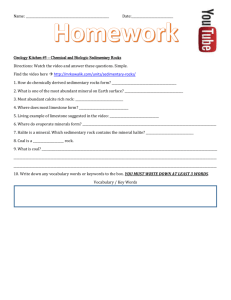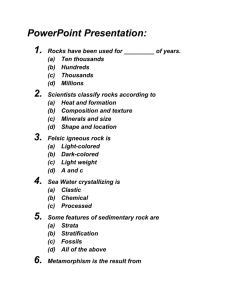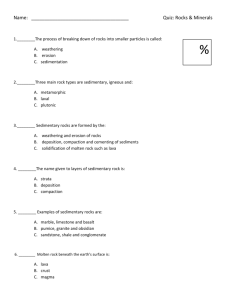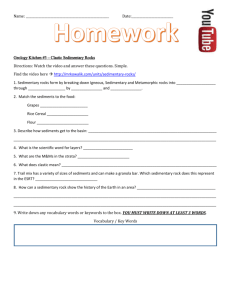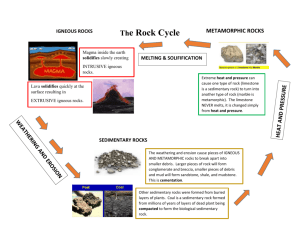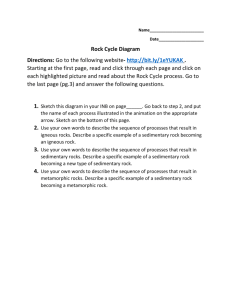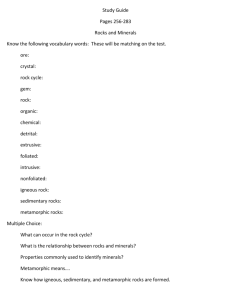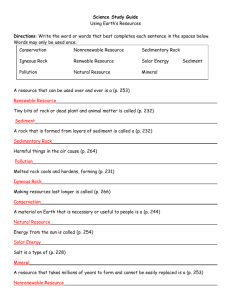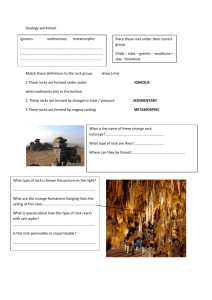Unit 8 Guide: Concepts of Earth Science Minerals and Rocks Key
advertisement
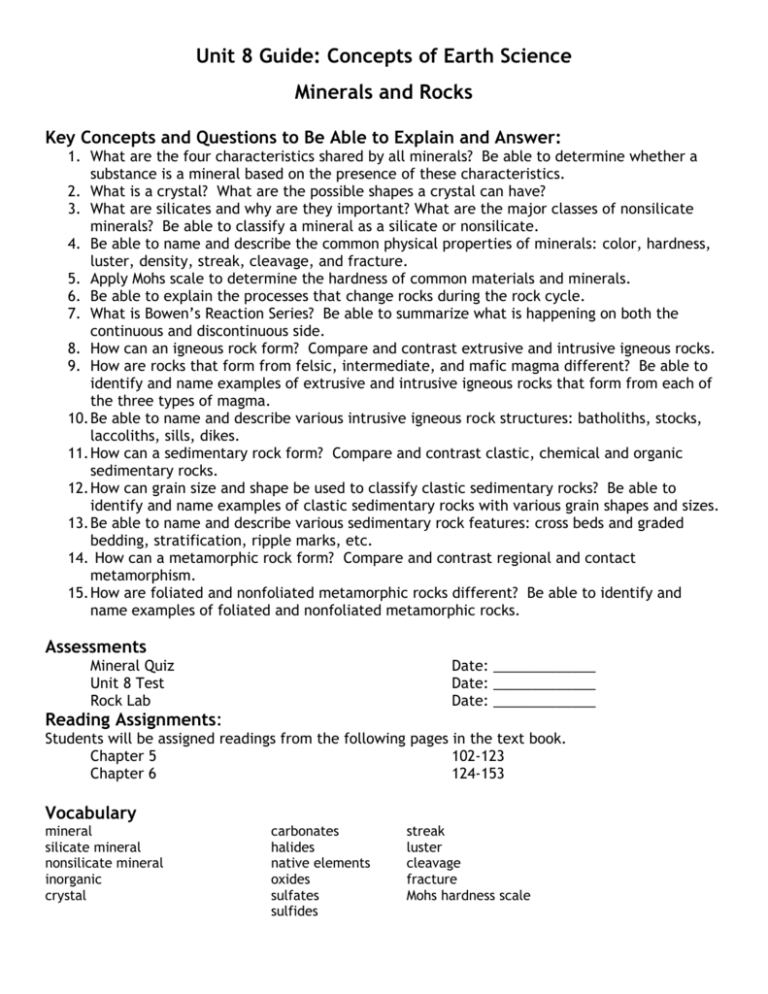
Unit 8 Guide: Concepts of Earth Science Minerals and Rocks Key Concepts and Questions to Be Able to Explain and Answer: 1. What are the four characteristics shared by all minerals? Be able to determine whether a substance is a mineral based on the presence of these characteristics. 2. What is a crystal? What are the possible shapes a crystal can have? 3. What are silicates and why are they important? What are the major classes of nonsilicate minerals? Be able to classify a mineral as a silicate or nonsilicate. 4. Be able to name and describe the common physical properties of minerals: color, hardness, luster, density, streak, cleavage, and fracture. 5. Apply Mohs scale to determine the hardness of common materials and minerals. 6. Be able to explain the processes that change rocks during the rock cycle. 7. What is Bowen’s Reaction Series? Be able to summarize what is happening on both the continuous and discontinuous side. 8. How can an igneous rock form? Compare and contrast extrusive and intrusive igneous rocks. 9. How are rocks that form from felsic, intermediate, and mafic magma different? Be able to identify and name examples of extrusive and intrusive igneous rocks that form from each of the three types of magma. 10. Be able to name and describe various intrusive igneous rock structures: batholiths, stocks, laccoliths, sills, dikes. 11. How can a sedimentary rock form? Compare and contrast clastic, chemical and organic sedimentary rocks. 12. How can grain size and shape be used to classify clastic sedimentary rocks? Be able to identify and name examples of clastic sedimentary rocks with various grain shapes and sizes. 13. Be able to name and describe various sedimentary rock features: cross beds and graded bedding, stratification, ripple marks, etc. 14. How can a metamorphic rock form? Compare and contrast regional and contact metamorphism. 15. How are foliated and nonfoliated metamorphic rocks different? Be able to identify and name examples of foliated and nonfoliated metamorphic rocks. Assessments Mineral Quiz Unit 8 Test Rock Lab Date: _____________ Date: _____________ Date: _____________ Reading Assignments: Students will be assigned readings from the following pages in the text book. Chapter 5 102-123 Chapter 6 124-153 Vocabulary mineral silicate mineral nonsilicate mineral inorganic crystal carbonates halides native elements oxides sulfates sulfides streak luster cleavage fracture Mohs hardness scale Vocabulary (continued) rock cycle Bowen’s Reaction Series igneous rock intrusive extrusive felsic mafic sediment weathering erosion compaction cementation chemical sedimentary rock organic sedimentary rock Rock Types You Should be able to Classify and Describe: Gabbro Rhyolite Schist Diorite Pumice Gneiss Granite Scoria Quartzite Basalt Obsidian Marble Andesite Slate clastic sedimentary rock metamorphism contact metamorphism foliated nonfoliated limestone rock salt fossil rich limestone chalk coal sandstone conglomerate siltstone shale breccia
